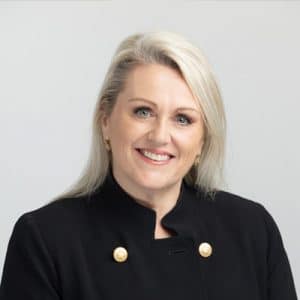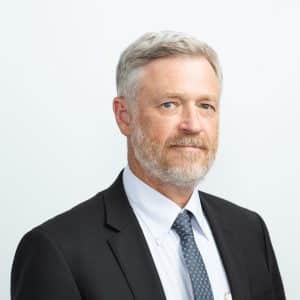Social Responsibility
We believe we have an obligation to create shared value for all our stakeholders. This is measured as much by the positive legacies we leave in our communities and the people whose lives we enrich as by the superior returns we deliver to our shareholders.
Management Approach
Evolution relies on the relationships we have with our stakeholders to ensure that the opportunities created by our operations produce socially inclusive and sustainable development for the communities in which we work.
Our day-to-day operations and success depend on our ability to maintain our social licence to operate. We engage proactively and work as a trusted partner within local communities, with respect to their local culture, to identify, understand, and mitigate risks and opportunities associated with our activities. This ensures we promote long-term development and benefits catered
to community needs and identify areas of improvement. Engagement occurs as early as possible within the mining lifecycle, including the assessment of social and economic conditions and impacts prior to settling in new areas.
Our approach is to:
- Build engaged and lasting relationships based on free, prior and informed consent (FPIC) to support lasting benefits with our communities
- Uphold fundamental human rights
- Protect cultural heritage and First Nation partnerships
- Invest in meaningful community projects and sustainable development
- Respect cultures, customs and values while engaging in open and inclusive dialogue
We aim to deliver enduring prosperity to our neighbouring communities through investment, community development, capacity building and infrastructure improvement. They experience direct social, environmental and economic impacts from the business, and so we actively engage and invest to support their development goals while identifying opportunities for improvement.
We recognise genuine and effective stakeholder engagement involves building relationships based on mutual trust, respect and understanding. Evolution adopts the principle of FPIC, which is applicable to the rights of Indigenous peoples in international law, and to other ‘land-connected peoples’, such as traditional and local communities living in rural areas near mining operations. Our stakeholder engagement efforts are aimed at a continuous, iterative process of communication and negotiation spanning the entire planning and project cycles.
Each operation is responsible for developing and implementing a Social Responsibility Plan, compromising a Community Relations Plan and First Nation Engagement Plan, which is approved annually and for which the Executive Chair is ultimately accountable. Operations update Group on their Plans monthly.
Each operation has a dedicated Social Responsibility Team. They manage engagement with local communities, pastoralists, private landowners, First Nation Partners and Indigenous Peoples, contractors and educational institutions, and local government to enable tenement applications, regulatory approvals, ongoing operations, training and employment opportunities. They are
trained to conduct dialogue focused on building and maintaining trust-based relationships and addressing issues important to our stakeholders. At the local level, the General Manager of each operation is responsible for Community engagement, First Nation engagement, Community Investment and outcomes in local sustainable development. At the Group Level, these teams are supported and guided by the Lead, Indigenous Relations & Community Partnerships role supported by the broader Sustainability function at Group.
The Lead provides a consistent and accessibleresource for the local communities that can support future Indigenous employees and businesses. Key responsibilities of the team include:
- Indigenous Stakeholder Outcomes – Liaising with First Nation Partners and Indigenous Peoples to ensure equal training and employment opportunities
- Cultural Heritage – Working closely with First Nation partners to ensure continued identification, recognition and protection of all cultural heritage. All teams carry out heritage surveys in alignment with individual heritage agreements with Traditional Owner groups and within guidelines. Surveys enable a risk-based design of the operations to avoid areas of
heritage significance - Community Engagement & Investment – Identifying, assessing, and implementing community investments, including Shared Value Projects, utilising current local tools and criteria
We have several agreements in place with our First Nation Partners outlining obligations including heritage protocols, employment and business opportunities, community engagement, cultural awareness training in collaboration with our First Nation Partners, health and education initiatives, and work ready programs. We proactively work with them to identify opportunities to collaborate.
During FY23, we strengthened community connections by:
- Embedding ourselves further within our communities with physical and visible town presences and offices, enabling deeper relationships
- Communicating and consulting early and regularly on projects to ensure our communities are aware, understand and can provide feedback prior to approval processes, e.g., Cowal’s Environmental Impact Assessment and Mt Rawdon’s Pumped
Hydro Project - Engaging with non-government conservation organisations and individuals
- Conducting Evolution focused community forums, including business development and employment sessions, and participating in local community forums and shire meetings
- Enhancing relationships with schools and developing work experience programs at the operations for local high schools
- Investing in community development partnerships at a local level focused on resilience and capability
- Celebrating our relationship and $1 million investment with the University of Queensland Australian Institute of Bioengineering and Nanotechnology which has resulted in an Immunostorm Chip for diagnostics for COVID-19 and cancer, and increased applicability and accessibility in diagnosing long-term impacts of these chronic diseases, as well as applicability in psychological, auto-immune, neurological, and aging areas





